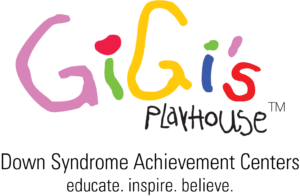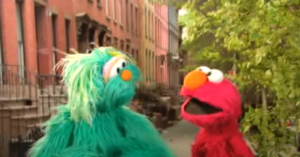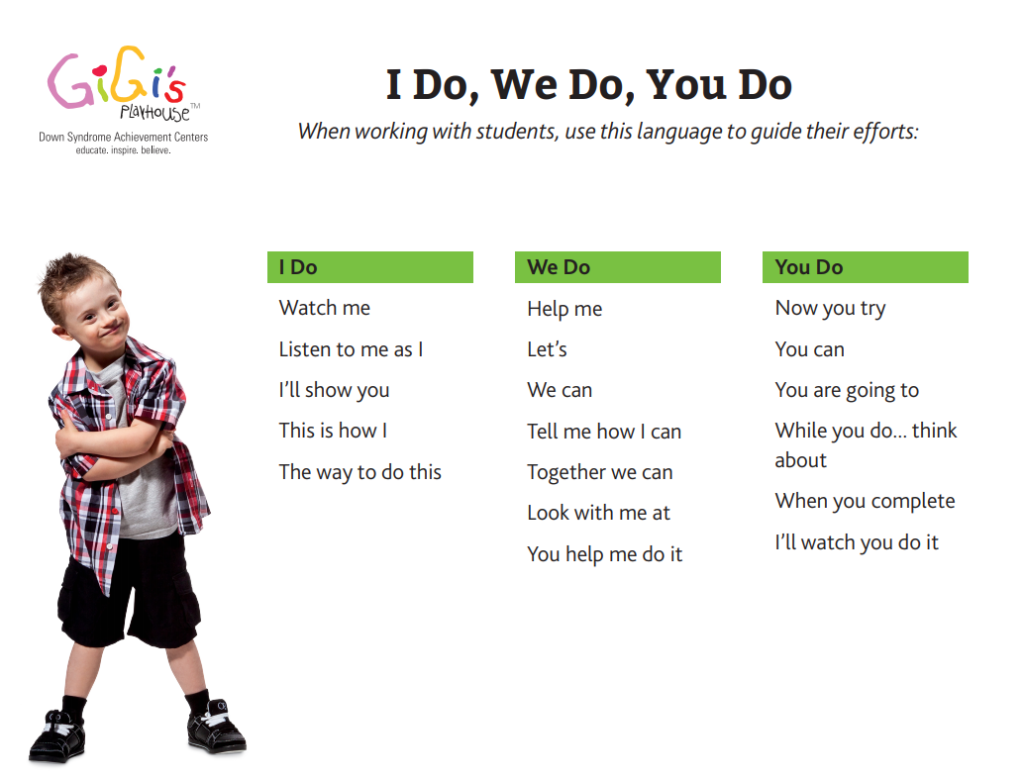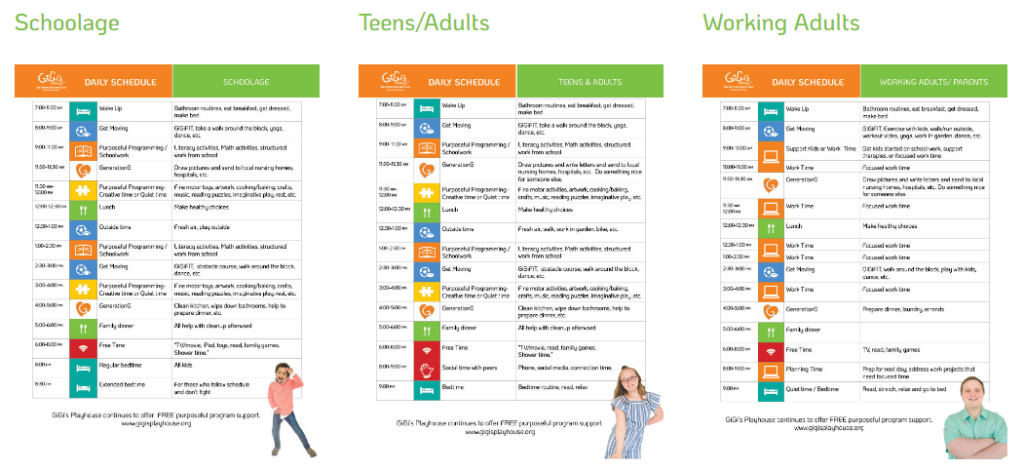Down Syndrome in a COVID-19 World

Don’t high-five, don’t shake hands, don’t touch anything. Don’t travel, don’t leave the house unless you have to, and definitely don’t hug. We have all been bombarded with a list of do’s and don’ts during the COVID-19 pandemic. So it’s fairly common knowledge what we should and shouldn’t be doing to avoid catching or spreading COVID-19. The challenge for individuals with Down syndrome, especially children, is not necessarily about knowing what to do but actually doing those things to keep themselves healthy. Communicating with them in ways they can learn and understand is essential to ensuring adherence to new routines and tasks while managing life in a COVID-19 world.
ENCOURAGE HEALTHY HABITS WITH POSITIVE LANGUAGE
Drop the long list of “don’ts” and focus on the “do’s”! Using positive language is a very helpful strategy for teaching students with Down syndrome. It provides clear and concise directions about what you would like them to do.
We know that our learners with Down syndrome are literal learners, so it really helps them when we LITERALLY just give them the information they need. We also know that learners with Down syndrome may have difficulty processing auditory information quickly, so when they hear “Don’t run”, they may only process the word “run” and will go even faster! When you say “please walk”, it is easy for them to hear the word “walk” and know what the expectation is.
During this pandemic, it can be especially important to use positive language to help your child know what they should be doing. Use phrases such as “Wash your hands”, “Leave mask on for safety”, “Elbow bumps are best”, “Give your friends space when you are talking”. Remember – telling them what you want them to do will bring the best results!
Watching videos like these from PBS can also aid in understanding what should be done in a fun and engaging way:
Germs, Germs, Go Away – Daniel Tiger
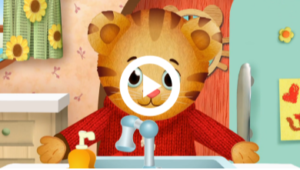
Elmo & Rosita: The Right Way to Sneeze!
THAT’S GREAT, BUT HOW DO I GET MY CHILD TO DO THINGS LIKE WEAR A MASK?
At GiGi’s Playhouse, we find that using the teaching strategy of “I Do, We Do, You Do” (Archer & Hughes, 2010) works great for our participants to teach them ANYTHING! Show them, do it together, they do it independently! Because our students tend to be literal and visual learners, showing them what we want them to do first ensures they understand the instructions (I Do). Then, we practice together, giving them only as much help as they need (We Do). And, finally, when they are ready, we encourage them to do it on their own (You Do).
An example of using this strategy during this time of pandemic could be helping them learn to wear a mask. First, find one that you think will be comfortable for them. Then show them how you will put yours on and wear it. Just wear it around for a little while so they can SEE that it is not hurting you or bothering you. Then, after they seem to be OK with you wearing a mask you can suggest that you both wear them at the same time. Help your child learn to put it on by themselves. Give them just as much help as you need to. After you practice several times and you think they can do it, encourage them to put it on by themselves.
Remember you are encouraging independence! It is best to practice when you don’t really need to be wearing a mask so there is no pressure or time limit. For example, don’t wait until you are in the car outside of a store to try it – practice at home until your child is comfortable and you don’t have to stress about it!
Letting them pick their mask color or finding a fun pattern with their favorite animal is another great way to encourage them to wear masks. You can even get this GiGi’s Playhouse Mask from Hugs & Mugs!
HOW CAN WE STAY SOCIALLY CONNECTED WHEN WE’RE SOCIALLY DISTANT?
It is hard to stay connected during this challenging time of isolation. This is especially difficult for individuals with Down syndrome who are still developing their social skills. Try these easy activities to stay socially connected:
- Go on a SCAVENGER HUNT outside. Talk about items that you find.
- READ stories virtually with a family member or friend.
- Describe something to a family member or friend virtually in a game of SHOW and TELL. Can they guess what it is?
- Do an ACTIVITY. Send a handwritten card or note to a friend or family member and talk about the steps involved.
- Play SIMON SAYS virtually! Practice providing and following directions.
HOW DO WE ENCOURAGE LEARNING AND GROWTH WHEN MOST PLACES ARE CLOSED?
Many kids with Down syndrome rely on physical, speech, and occupational therapies to support their growth and development. In-person services can be limited or non-existent during the pandemic. Spending time with your child doing meaningful activities like exercising, going on a walk, reading together, or creating art projects are important as is keeping up with regular routines when possible.
Create a schedule for learning activities, social and physical engagement, and resting. These printable schedules are a great starting point and can be adjusted to fit your personal needs.
And just because we are physically distant, does not mean you can’t have access to the same purposeful programming that you are accustomed to at GiGi’s Playhouse.
We offer FREE live and on-demand programs through GiGi’s At Home. There are options for everyone to stay connected during times of isolation. From yoga for the family, to math tutoring, to cooking and fitness classes, and more.
[youtube_sc url=”https://youtu.be/SuA4oD1OvMU”]
For more COVID-19 resources, click HERE.
